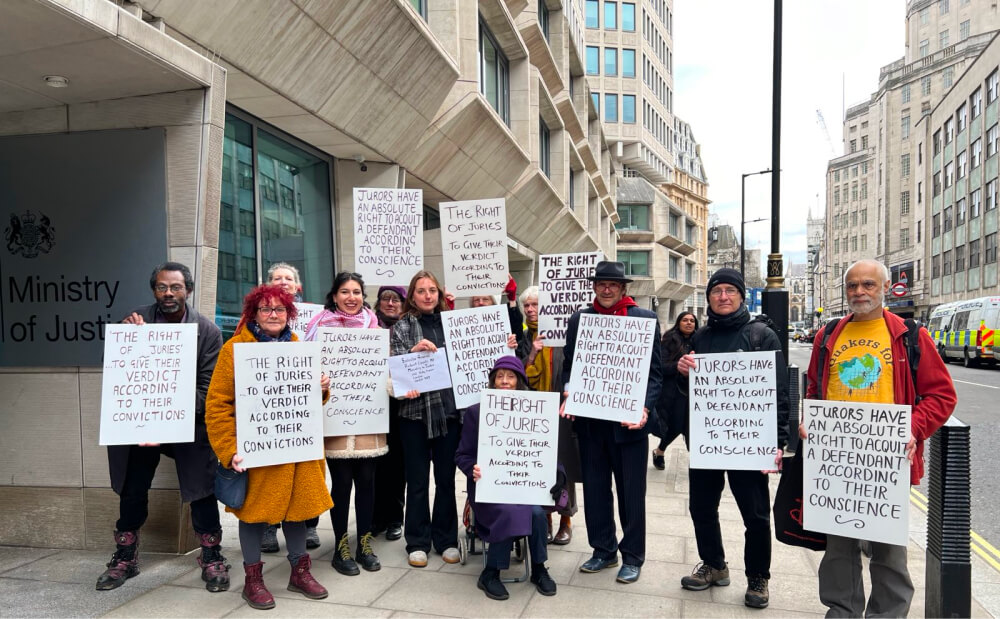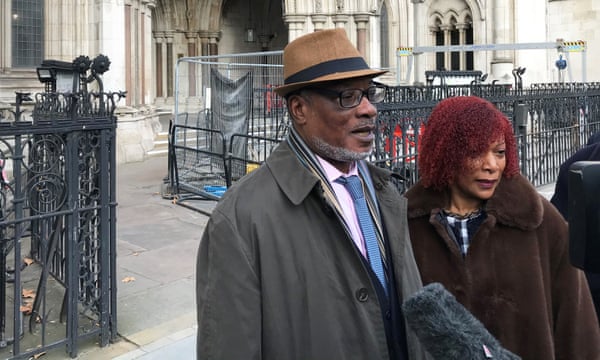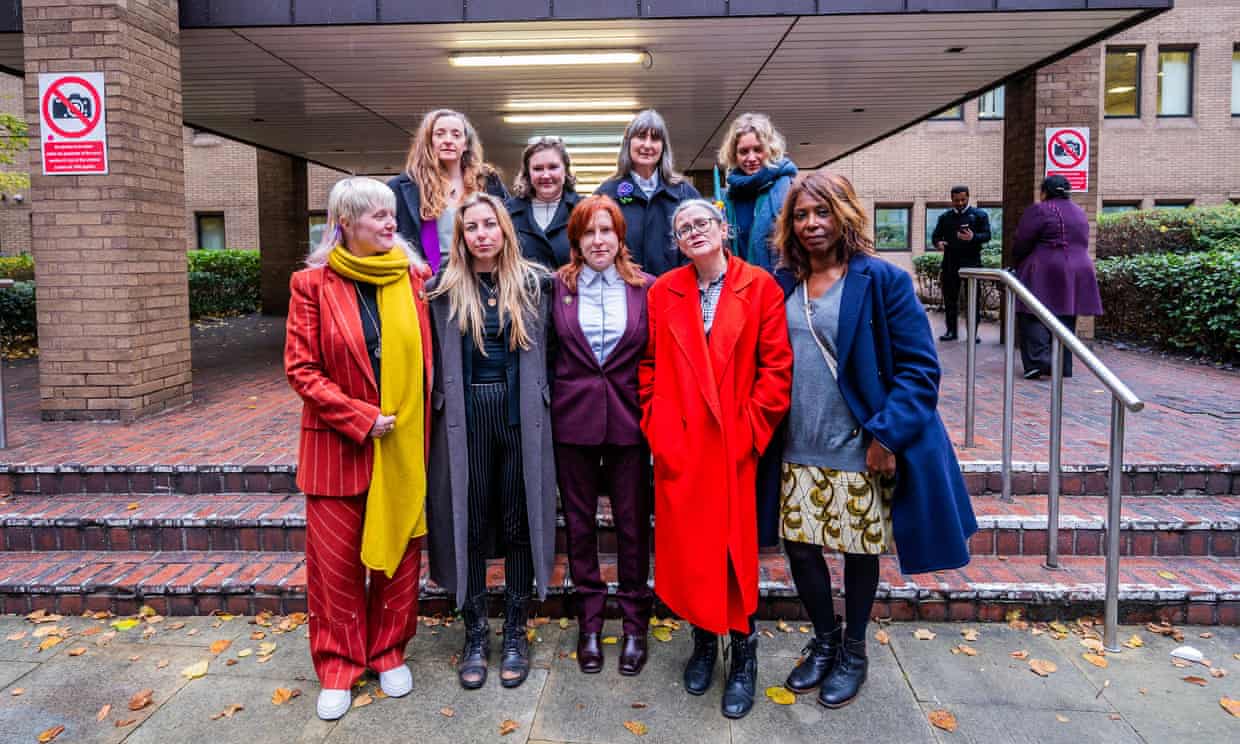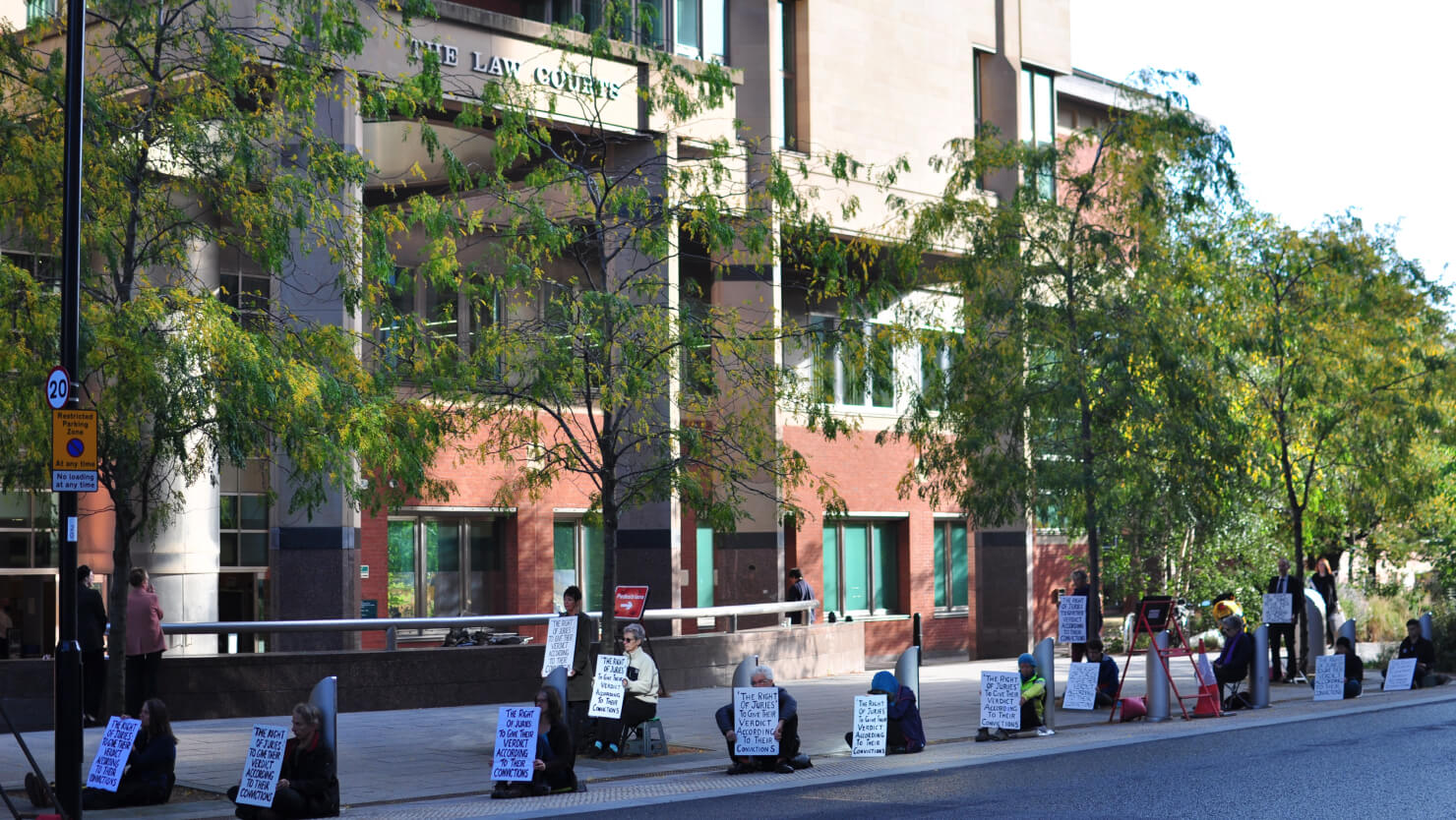National Press
Articles & reports

Guilty Consciences
A prominent plaque at the Old Bailey celebrates the first time a jury refused to convict two defendants against the directions of a judge, in 1670. The Quaker preachers’ alleged crime was “unlawful assembly” and the case established a jury’s entitlement to decide “according to their convictions”.
Unsurprising, then, that at the high court on Monday Mr Justice Saini dismissed a contempt of court case against ex-social worker Trudi Warner, 69. She had held up a poster outside another London criminal court stating the same fact: “Jurors: you have the right to vote with your conscience.” The problem for Warner was she was outside Southwark Crown Court, where the now notorious Judge Silas Reid had been ordering defendants not to even mention climate change or fuel poverty as a defence or mitigation for their protest actions – and jailing them when they did (Eyes passim).
A new “Defend Our Juries” protest movement grew in solidarity after Reid ordered her arrest and referred the case to government law officers for alleged contempt. Last week lawyers for Warner argued that it was not in the public interest for her to be prosecuted; she had not interfered with the process of justice; her actions were protected by freedom of speech laws; and, as the Old Bailey commemorative plaque made clear, it was not unlawful for the public, including jurors, to know or be alerted to the principle of “jury equity”.
In a ruling seen as a blow to the government’s crackdown on peaceful protest, Mr Justice Saini agreed, saying Warner was “in essence a human billboard” and it was “fanciful” to suggest her conduct amounted to contempt. He dismissed solicitor Robert Courts’ claims that she should be prosecuted “to maintain public confidence” in the independence of the jury system and that, left unpunished, similar acts would be “likely to propogate”.
Last Friday, meanwhile, a medical practitioner’s tribunal found GP Sarah Benn guilty of professional misconduct. She hadn’t harmed or failed her patients, but had been found guilty of breaching an injunction by holding a poster saying “Stop new oil” at a Warwickshire oil depot. She was concerned that public health was seriously at risk from the threat of climate change, but was jailed for 32 days. Benn is now one of dozens of health professionals who face losing their licences to practice because of peaceful fossil fuel protest.

Royal Courts of Justice protest
Three Court of Appeal judges – the lady chief justice Baroness Carr of Walton-on-the-Hill, Lord Justice William Davis and Mr Justice Garnham – heard a case yesterday brought by the attorney-general to stop climate change activists using the defence of “belief of consent” when they face prosecution for causing criminal damage.
In some cases protestors have successfully put forward a defence based on their honest belief that property owners would have consented to the damage caused if they had properly understood the need to act to stop the climate emergency.
In what the supporters called an “Armistice walkout”, more than 100 people who had been watching the case walked out of the hearing at 11.11am yesterday “in remembrance of the democratic freedoms our grandparents fought for”.
They gathered in the hall of the court building to hold a “citizens’ jury” to consider whether the British justice system “serves the public interest or the interests of international finance and corporations”.
The Court of Appeal reserved judgment, which it expected to deliver within four weeks.” In The Times, “Brief”, email sent to lawyers and judges etc
Jury Rigged?
THE government’s senior law officer will this week ask the appeal court to close down the last remaining defence available to climate change and other protesters facing criminal damage charges.
The move follows a series of high-profile cases where juries have, it appears, voted with their conscience and acquitted protesters of spraying paint, smashing windows or toppling statues.
None of which sits well with a government apparently intent on criminalising peaceful protest. Only last month Michel Forst, the UN’s special rapporteur on environmental defenders, expressed alarm that fundamental UK freedoms were being crushed by “regressive” public order laws, punitive and unprecedented jail sentences, and harsh bail conditions. He was alarmed that judges, such as Silas Reid (Eye 1594) had prevented “public nuisance” road blockers from mentioning climate change in evidence or mitigation, even when their liberty was at stake.
This week’s test case raises another concern: the gradual erosion of legal defences that protesters can run before the jury. Attorney general Victoria Prentis KC will argue that there is, in effect, no realistic defence in law for activists who cause damage to buildings or property. Prentis and the courts cannot interfere with a jury’s unqualified right to acquit. However, by taking a “point of law” before the judges, she is trying to ensure it won’t happen again.
The specific case cannot be identified for legal reasons. However, recent direct action has seen a tactical switch from general disruption to targeting those investing in, profiting from or promoting fossil fuels. Some demonstrators have been cleared after running a curious defence: telling jurors that had the property owners known the full impact of climate change, they would have “consented” to the damage.
Activists were forced to rely on the somewhat tenuous get-out clause in the 1971 Criminal Damage Act, because the more usual defences of right to peaceful protest and freedom of expression had been withdrawn in another “point of law” appeal in 2022.
But the clampdown may yet backfire. Juries have historically provided an important check, acquitting when they think the law may be harsh, unfair or out of step with public opinion.
Some recent Insulate Britain, Extinction Rebellion and Just Stop Oil acquittals have followed protesters citing their moral, rather than legal justification. Which means all eyes will be back on Judge Reid at Inner London Crown Court, who, as the Eye went to press, was due to preside over a climate-change trial involving allegations of criminal damage.
On Thursday 9 November, the eminent legal scholar, Professor John Spencer CBE, wrote an opinion piece for the Times, offering more invaluable support for the Defend Our Juries campaign: “Defying a judge is not always contempt of court – Jury equity could be seen as an important constitutional safeguard”
He argues that on a proper interpretation of the law, courts should giv[e] protesters some chance to explain the reasons for their actions” and not punish “those who try to make the jury aware of [the principle of jury equity]”.
He concludes by quoting E.P. Thompson in a stinging rebuke to those undermining trial by jury: “There are worse offences to the body politic than contempt of court; and these are contempt for our constitutional history and contempt for the people of this country.”
Judge threatens Dr Gail Bradbrook with trial without jury
On 1 November 2023, Dr Gail Bradbrook, a co-founder of Extinction Rebellion, was found guilty of criminal damage after the Judge at Isleworth Crown Court:
- Banned her from explaining why she did what she did
- Threatened to move to trial without a jury
- Directed the jury that she had no defence
- Prohibited her from telling the jury they have an absolute right to acquit
August – September 2023
- Quakers risk prison to defend vital legal precedent Quakers In Britain, 21 September 23
- Fears over right to protest after woman with sign at climate trial prosecuted The Guardian, 19 September 23
- Climate activist to be prosecuted for contempt over court protest The Times, 18 September 23
- Activist Who Held Sign Outside Court Informing Jurors of ‘Right to Acquit’ Insulate Britain Activists Could Face Two Years in Jail Byline Times, 18 September 23
- Meet the Shadowy Network Vilifying Climate Protestors DeSmog, 12 September 23
- Courts to Face Wave of Protests as Climate Campaigners Say Right to Jury Trial ‘Under Attack’ Byline Times, 6 September 23
- Big Oil Billions and The Real Cancel Culture Threatening Brits With Prison for Telling the Truth Byline Times, 25 August 23
- Prosecute all of us, climate protesters urge The Times, 17 August 23
- Charge us with contempt too, say 40 people, if climate activist prosecuted Guardian, 17 August 23
May – July 2023
- Contempt threat against climate activist may undermine trial by jury, lawyers say Guardian, 26 July 23
- The climate trials The Ecologist, 20 June
- Climate activists risk contempt charges over placards outside court The Times, 2 June 23
- Judges join lawyers in the bear pit Law Society Gazette, 23 May 23
- Climate activists call crown court judge ‘unprincipled bully’ during protest Independent, 15 May 23
February – April 2023
- Climate activist who allegedly held sign directed at jurors may be charged Guardian, 4 April 23
- Protesters must be allowed to explain motives in court The Times, 13 March 23
- Activists jailed for seven weeks for defying ban on mentioning climate crisis Open Democracy, 3 March 23
- Insulate Britain activist jailed for eight weeks for contempt of court Guardian, 7 February 23














